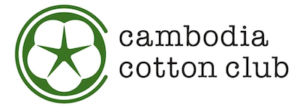Below is a reminder from the Ministry of Agriculture, Forestry and Fisheries (MAFF) as of the end of last December.
"It was found that cotton seeds for cultivation imported from China and sold in the market contained genetically modified seeds. The seed companies are being instructed to recall the seeds. The product names "Tall Cotton" and "Natural Fiber Cotton" should not be grown."
Even after this, in January of this year, a major seed and seedling company voluntarily recalled cotton seeds because they were contaminated with genetically modified organisms.
The conclusion of what we learned from our phone and email interviews with the MAFF's "Recombinant Body Management Guidance Team" is
"The possibility of cotton seeds containing genetically modified seeds is considered low because cotton seeds imported from overseas and distributed domestically in the future will be tested for the presence of genetically modified organisms before being imported. However, even with analytical testing, it cannot be scientifically said that 100% will not be missed, since there are times when genetically modified cotton seeds below the lower limit of detection can be detected and other times when they cannot."
That is to say.
Under the guidance of MAFF, the distributor's seed stock has already been collected by the importer and disposed of as industrial waste. However, some of the seeds have already been sold at home centers and other places where seeds are sold to the general public and are already in the hands of an unspecified number of consumers, making it difficult to ask each consumer not to grow them. Therefore, the press release urged people not to cultivate it.
The recombinant genes that have been confirmed to have been included in the product are "531 butterfly pest-resistant cotton lines and 1445 glyphosate-tolerant cotton lines. The Japanese subsidiary of Monsanto of the U.S. has already disclosed these genes along with many other crops (soybeans, corn, potatoes, etc.) as "crops that have been approved for safety in Japan" (see link below). (see link below)
http://www.monsanto.com/global/jp/newsviews/pages/safety-approval.aspx
According to MAFF, the problem was that "the use, importation, and transportation of watata as food and feed in Japan have already been approved, but since no application for cultivation has been made, cultivation should not be done".
Is it really true that there are no genetically modified organisms in the cotton seeds imported prior to this?
( to be continued )
